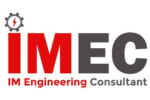Multi-Techno Integrated Solution
Best ERP Software in Pakistan for Enterprises & Growing Businesses
- All-in-One Solution: Manage every part of your business in one place.
- Real-Time Data: Access up-to-date info to make smart decisions fast.
- Secure & Compliant: Keep your data safe and meet industry standards.
Request for Demo
Providing Integrated Solutions for Your Business
Multi-Techno ERP Modules
Finance and Accounting
Inventory Management
Sales and Marketing
Human Resources (HR)
Order Booking App
Procurement and Purchase
Production and Manufacturing
Supply Chain Management (SCM)
Customer Relationship Management (CRM)
Data Analytics and Reporting
Asset Management
Project Management
Industries We Are Serving
These salient features highlight the ways in which Multi-techno ERP solutions may improve operational effectiveness, compliance, and overall business performance for a Wide Range of Industries.
Optimize Growth with Multi-techno ERP
- Easily transform your company’s operations with our affordable, cloud-based ERP software.
- Take advantage of unparalleled access to vital data, optimized procedures, and increased productivity.
- Adopt the Cloud Revolution for a productive and safe working environment.
Empower Your Team with Multi-techno ERP
- Give your staff the freedom to concentrate on growth-promoting strategic activities.
- Safe, central data access is guaranteed by our cloud-based system, accessible from any location.
- Launching a new chapter in business brilliance.
Are you prepared to transform your company? Get in touch with us right now!
Why Choose Multi-Techno ERP
One Click Payroll
Analytical Dashboards
Customizable Reports
Automated Alerts & Notifications
Dynamic Workflow
Fast-Growing ERP Software
Geo Fencing
On-Cloud & On-premises
Employee Self Service
Premium Modules
Standerd Quality
Mobile Application
Our Satisfied Clients











































Integrate With The Apps You Love











Multi-Techno ERP Registration With
About Us
ERP software and systems are designed and implemented by Multi-Techno, a registered company. By combining data from financials, sales, CRM, inventories, and operations, businesses can increase productivity, make better decisions, and increase profitability with the aid of our ERP System, a single, integrated software platform.
Quick Links
Contact Us
Office # 100, 101 Second Floor Kohinoor 1, Faisalabad, Pakistan













